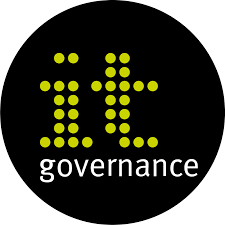


The IT Governance training programme is built on the foundations of our extensive practical experience of designing and implementing management systems. Our training courses offer a structured learning path from Foundation to Advanced level for IT practitioners and lead implementers, and help to develop the skills needed to deliver best practice and compliance in an organisation. In addition they provide the tools for career advancement via industry standard certifications and increased peer recognition.
Firms make significant investments in IT. In the IS/IT Governance course we will discuss how to govern IT to make sure that the IT investments contribute to organizational goals and strategies.
Firms need to formally evaluate significant IT investments. IT investments are also risky, so firms need to consider the risk associated with the investments to appropriately evaluate the investment. We will discuss how to evaluate IT investments. Firms usually make multiple IT investments in a given year. In this course we will discuss how to evaluate a portfolio of IT investments. Firms need a mechanism to charge users for the IT investments made to encourage prudent consumption of IT resources. We will discuss different mechanisms for charging for IT that incents users to spend IT dollars wisely. Finally, IT investments are made to generate value for the firm. This requires that employees actually use the new IT systems that is developed. Thus, in the IS/IT Governance course we will discuss strategies to make sure that users use the new system so that the firm derives value from its IT investments.
Take the next step in your career and discover the benefits of IT Governance training. From introductory courses through to advanced training, avaliable as classroom, instructor-led online, or self-paced online courses, you’re guaranteed to find a course you’ll love.
There is no shortage of dangers in the Digital Age. Companies that utilize customer data and personal information have strict responsibilities: while they can certainly profit from having customer details on-file, they must be prepared to keep them safe and, when asked, delete them. This has become particularly important in recent years, with GDPR compliance and data Security breaches keeping companies constantly on-edge.
The important thing to remember about IT governance and compliance is that they are ongoing objectives. Best practices must be assimilated into corporate cultures in order to proceed efficiently and on-target. Laws and regulations like the General Data Protection Regulation (GDPR) also require organizations to be able to demonstrate their ongoing commitment to compliance. Without this evidence, potential fines are often much more severe.
Get a head start and explore the concepts surrounding Information Technology Governance tools and techniques. IT Governance is a subset discipline of Corporate Governance focused on Information Technology (IT) systems, their performance, and risk management.
Popular courses are Security of Network and Information Systems Directive NIS
If you need training for 3 or more people, you should ask us about onsite training. Putting aside the obvious location benefit, content can be customised to better meet your business objectives and more can be covered than in a public classroom. It's a cost effective option. One on one training can be delivered too, at reasonable rates.
Submit an enquiry from any page on this site, and let us know you are interested in the requirements box, or simply mention it when we contact you.
All $ prices are in USD unless it’s a NZ or AU date
SPVC = Self Paced Virtual Class
LVC = Live Virtual Class
Our clients have included prestigious national organisations such as Oxford University Press, multi-national private corporations such as JP Morgan and HSBC, as well as public sector institutions such as the Department of Defence and the Department of Health.












